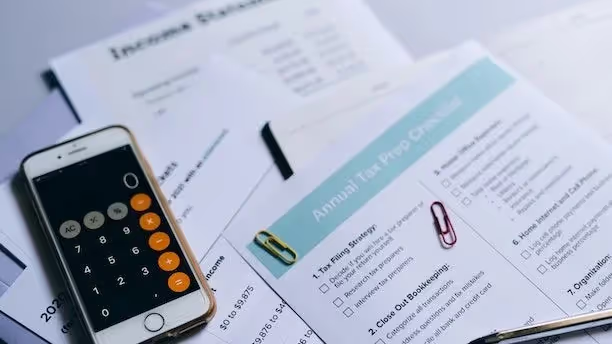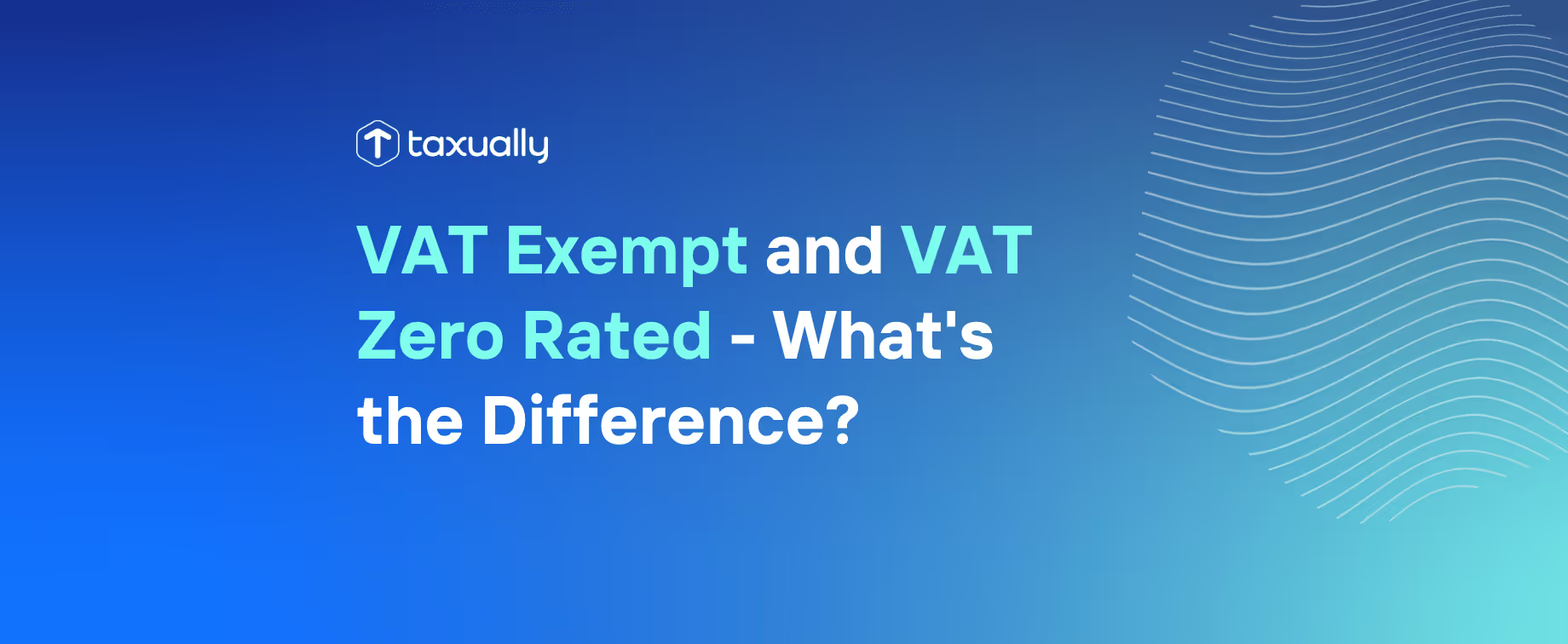Key takeaways
- VAT exemption vs. zero-rated VAT: Exempt supplies are not subject to VAT and do not allow VAT recovery on related costs, while zero-rated supplies are taxed at 0% but still permit VAT reclaims on inputs.
- Impact on businesses: Businesses dealing in zero-rated goods can reclaim input VAT, potentially lowering costs, whereas those offering exempt goods cannot, which may lead to higher operating expenses.
- Compliance is critical: Proper classification, record-keeping, and expert advice are essential to ensure correct VAT treatment and avoid penalties.
The application of VAT can be complex, and it often includes various provisions to provide relief to specific sectors or products. Two such provisions are VAT exemption and zero-rated VAT. But how do these concepts differ, and what are their implications for businesses and consumers? In this comprehensive guide, we'll explore the intricacies of zero-rated VAT and VAT-exempt supplies, providing valuable insights and practical guidance for navigating these taxation concepts.
Understanding VAT exemption
VAT exemption is a mechanism that allows certain goods and services to be exempt from VAT altogether. This means that when a business provides a VAT-exempt product or service, it doesn't charge VAT to the customer, and it cannot recover any VAT incurred on related expenses. However, this doesn't mean the business can't claim VAT refunds for other taxable activities.
VAT exemptions are typically applied to essential goods and services that are considered vital for the welfare of society. While these exemptions can benefit consumers by reducing the cost of essential items, they can also pose challenges for businesses, as they cannot recover the VAT they pay on inputs related to exempt activities.
Common examples of VAT-exempt items or services include:
- Education: Educational services, such as those provided by schools, universities, and vocational training centers, are often VAT-exempt.
- Healthcare: Medical services, hospital care, and the supply of certain medical products may also be exempt from VAT.
- Financial services: Many financial services, like insurance and banking, are VAT-exempt.
- Charitable activities: Donations and activities carried out by registered charities may be exempt from VAT.
- Postal Services: Postal services provided by the government or state-owned postal companies are typically VAT-exempt.
It's important to note that the specific items or services exempt from VAT can vary from one country to another, as tax laws and regulations differ.
Comparing zero-rated and VAT-exempt supplies

Understanding the implications of zero-rated and VAT-exempt supplies requires a grasp of the key differences between the two concepts. While zero-rated supplies are subject to VAT at a 0% rate, an exempt supply is not incorporated into the taxable turnover and is not subject to VAT at all.
These differences substantially impact businesses and consumers, particularly in the context of reclaiming input VAT.
Key differences
Zero-rated supplies are subject to VAT, albeit at a rate of zero percent, while exempt supplies are not subject to any rate of VAT. Consequently, businesses have the ability to reclaim the VAT paid on purchases for zero-rated supplies, which could reduce their costs and boost profits.
Conversely, exempt supplies do not enable businesses to reclaim VAT, which can lead to higher costs for both businesses and consumers. It’s crucial for businesses to accurately classify their goods and services to ensure they are applying the correct VAT treatment.
Tax liability:
- VAT exemption: No VAT is charged on exempt items or services, and the supplier cannot claim input VAT as a credit or refund.
- Zero-rated VAT: VAT is technically applicable at a 0% rate, but the supplier does not collect VAT from the customer. The supplier can usually claim input VAT.
Consumer impact:
- VAT exemption: Consumers do not pay VAT on exempt items or services, making them more affordable.
- Zero-rated VAT: Consumers do not pay VAT on zero-rated items or services, but the supplier can still claim input VAT, potentially reducing the cost.
Complexity:
- VAT exemption: Generally simpler to administer because no VAT is involved in the transaction.
- Zero-rated VAT: More administratively complex as it involves charging VAT at a 0% rate and reclaiming input VAT.
Impact on VAT reclaims
While businesses do not collect VAT on zero-rated supplies, they still incur VAT on their purchases and operational expenses. These businesses are entitled to reclaim the VAT they have paid on inputs, which includes everything from raw materials and equipment to office supplies and services. This mechanism allows businesses to recover the VAT they have paid throughout the supply chain, thereby reducing their overall tax liability.
As a result, zero-rated VAT can be a valuable benefit for businesses, especially those operating in industries heavily reliant on inputs subject to VAT, such as manufacturing or construction. It can improve their cash flow and competitiveness by reducing their tax costs and ultimately enabling them to offer more competitive prices to consumers.
On the other hand, VAT-exempt supplies do not enable VAT reclaims, which can result in additional irrecoverable costs for businesses. This distinction is crucial for businesses to comprehend when dealing with VAT reclaims and determining their overall tax liabilities.
Navigating VAT rules for zero-rated and exempt items
Given the intricate VAT rules and the differences between zero-rated and exempt items in the EU and elsewhere, businesses might find various VAT systems challenging to navigate.
In this section, we'll provide guidance on identifying eligible items and seeking expert advice to ensure accurate VAT treatment and compliance with specific VAT rules.
Identifying zero-rated and exempt items
Determining whether items are zero-rated or exempt from VAT is a crucial aspect of VAT compliance. To classify items accurately, consulting with VAT specialists or reviewing the relevant legislation is advisable.
By doing so, businesses can ensure that they are applying the correct VAT treatment to their goods and services, preventing potential compliance issues and financial penalties.
Seeking expert advice
Considering the complexities of VAT rules and regulations, seeking expert advice is recommended when dealing with zero-rated and exempt items. VAT experts can provide direction and clarification on the distinctions between zero-rated and exempt items, as well as assist in understanding the relevant rules and regulations.
By consulting with professionals, businesses can confidently navigate specific VAT systems and ensure accurate VAT treatment for their goods and services.
Accounting for zero-rated VAT

It's crucial for businesses to properly handle zero-rated VAT transactions to ensure compliance with VAT regulations. Here's a brief overview of how businesses should generally be accounting for zero-rated VAT:
Proper invoicing
When you make a sale that qualifies for zero-rated VAT, you must issue an invoice to your customer that clearly indicates the VAT rate of 0%. Ensure that the invoice contains all the required details, such as your VAT number and the customer's VAT number if applicable.
Keep accurate records
Maintain thorough records of all transactions involving zero-rated VAT. This includes invoices, receipts, and any other relevant documentation. Proper record-keeping is essential for audits and tax inspections.
Include zero-rated transactions in VAT returns
Even though the VAT rate is 0%, businesses must include their zero-rated transactions in their regular VAT returns. This ensures that tax authorities can track these transactions and verify compliance. You will typically report both the input VAT (VAT you've paid on purchases related to zero-rated supplies) and the output VAT (VAT you've charged on zero-rated supplies) in your VAT return.
Comply with VAT rules
Be aware of any changes or updates to VAT rules in the country or countries you're operating in, as they can vary over time. Staying informed and seeking professional advice if needed is crucial to ensure compliance.
VAT refund claims
If your business incurs more input VAT (VAT on purchases) than you charge in output VAT (VAT on sales), you may be eligible for a VAT refund. This process involves filing a VAT refund claim with your local tax authority, and the rules and procedures can vary from country to country.
Conclusion
Understanding the differences between VAT exemption and zero-rated VAT is crucial for businesses. While these mechanisms serve different purposes, they both aim to ensure that essential goods and services are more accessible and affordable. However, the distinctions in VAT recovery and tax rates can have significant implications for businesses, so it's essential to correctly categorize supplies to comply with VAT regulations effectively.
As VAT rules vary depending on the country and can change over time, it's advisable to consult with tax professionals or local tax authorities for specific guidance on VAT treatment in your jurisdiction. Proper compliance with VAT regulations not only helps avoid legal issues but also contributes to the smooth operation of your business.
Do you need help with your VAT compliance? Book a free call with one of our VAT experts to find bespoke solutions for your business, optimize your VAT costs, and reach millions of new potential customers.
Frequently asked questions
New Year's Day - 1/1/2024Memorial Day - 5/27/20244th of July - 7/4/2024Labor Day - 9/2/2024Thanksgiving Day - 11/28/2024Day after Thanksgiving - 11/29/2024Christmas Eve - 12/24/2024Christmas Day - 12/25/2024
What is zero VAT?
Zero-rated VAT means certain goods and services are taxable at 0%, so customers do not have to pay any VAT on these items, but suppliers can still reclaim VAT paid on costs associated with providing them.
What goods are VAT zero-rated?
Goods that are typically zero-rated include basic foodstuffs, prescription medicines, books and educational materials, public transportation, and exports.
What does exempt VAT mean?
Exempt VAT means that certain goods and services are not subject to Value Added Tax. The seller will not charge their customers any VAT, but they also won’t be able to reclaim any VAT paid on costs related to these goods or services.
What is the difference between VAT-exempt and zero-rated?
Zero-rated goods are not taxed during sale, but producers can claim a credit for the value-added tax paid on inputs. On the other hand, exempt goods are not taxed either, but producers cannot get a credit for the VAT paid on inputs.
Can you reclaim VAT on zero-rated supplies?
Yes, you can reclaim VAT on zero-rated supplies. This is because these supplies are taxable at a rate of 0%, meaning that the customer does not have to pay any VAT, but the supplier can reclaim the input VAT paid on associated purchases.



















